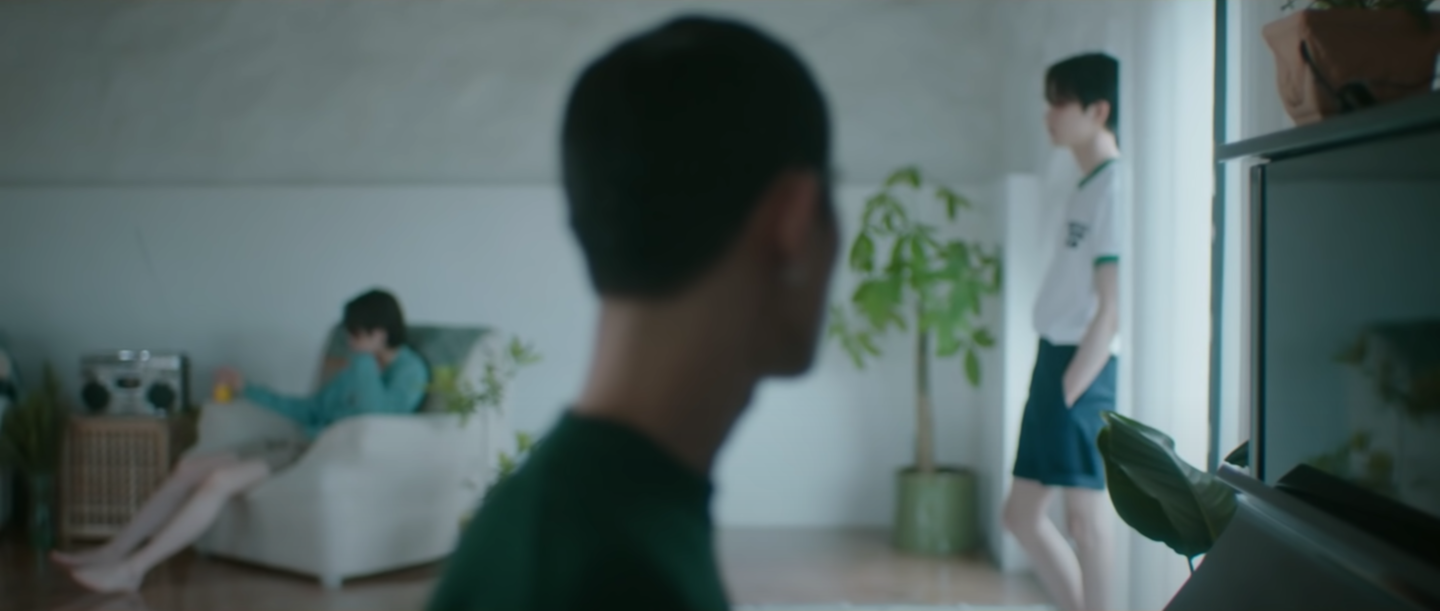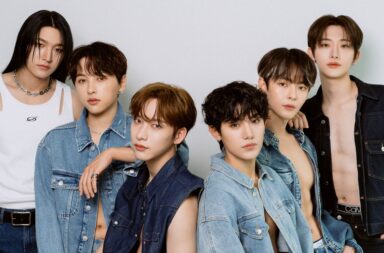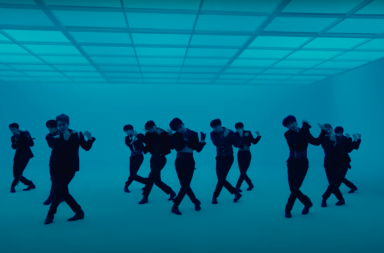
The K-pop industry has always stayed ahead of marketing trends. It’s this heavy focus in marketing that has allowed the industry’s global popularity to soar to astounding heights, bringing in devout fans from all walks of life, well outside the borders of South Korea. Likewise, this surge in popularity has seen a rise in LGTBQ fans — a trend that has not gone unnoticed by K-pop companies. In lieu of actual representation, however, the K-pop industry has met their ever-growing LGTBQ fanbase with the tactic of queer-baiting. And in a long, long list of releases, OnlyOneOf’s “Libido” comeback is the most recent queer-baiting perpetrator.
In media, queer-baiting is the practice of ambiguously hinting at same-sex relationships without ever confirming said relationships to be real. Born out of “shipping” culture in online fandoms, wherein fans like to imagine the could-be relationships between their questionably intimate favorite characters, queer-baiting is a strategy used to string along fans in the hopes their fictional relationships could one day become real. It particularly thrives on sexual tension, begging the question, “will they or won’t they?” as content creators push the physical limits as far as they can, without ever having to admit their characters are actually gay.
In K-pop, where idols’ very carefully crafted personas may as well be fictitious, this phenomenon is manifested through acts like skinship and fanservice, and as a marketing scheme, it works. For LGBTQ fans, the desire to feel seen is immense. And for those outside the LGBTQ sphere — such as those within the traditionally conservative borders of South Korea, where a 2018 poll run by the Korea Institute of Public Administration found that 49% of its 8,000 participants were against homosexuality — the concept of queer-baiting allows them to viscerally enjoy queerness without having to accept it. After all, the forbidden fruit tastes the sweetest.
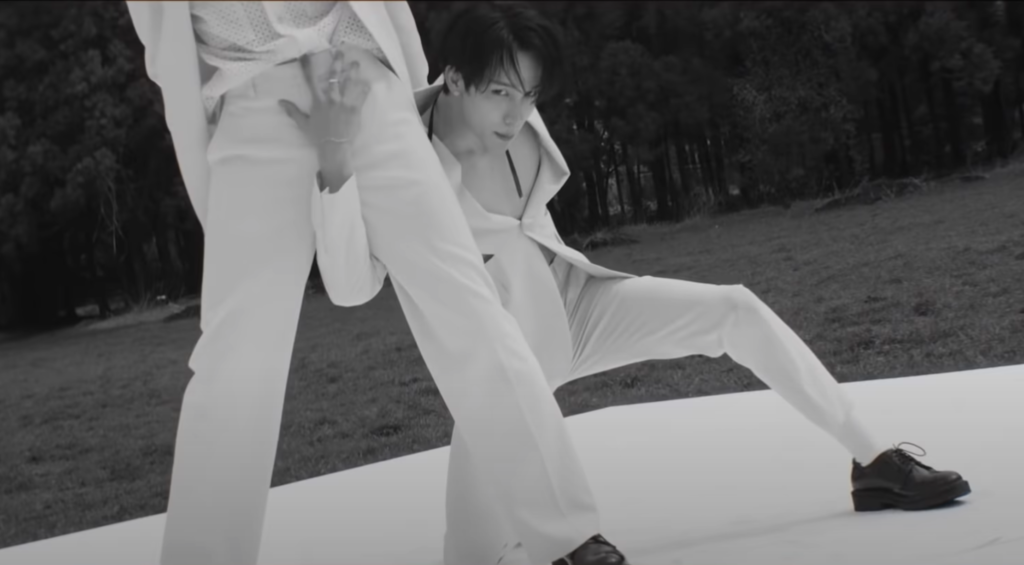
OnlyOneOf’s recent comeback “Libido” is hardly the first release to queer-bait, but it has set a new precedent. With a title like “Libido,” a Freudian term for sexual desire, the lyrics are unsurprisingly sexual in nature (“Want you to sing on my body again today, Today don’t hold it back, just accept it libido”), but it’s actually the choreography and MV for the song that give the comeback its queer touch.
Sensual choreography in K-pop is nothing new, of course, but few dances have been so directly sexual as the choreography for “Libido.” The most eyebrow-raising moment comes when member Nine gently trails his hand down leader Love’s typically bare back, his touch ghosting over Love’s bottom before Love suddenly ties Nine up by the neck and pulls him in towards his crotch. The move ends with Nine directly grabbing Love’s crotch from between his legs as he kneels below him. It’s no mistake this entire paragraph read like fan fiction–this is queer-baiting at work. In fact, the intention is clear with the camerawork alone: in both the MV and live stages, the camera always zooms in on this point choreography, giving the fans what they want, so to speak.

The MV takes this even further, with repeating imagery that makes “Libido” feel like something out of a gay coming-of-age movie. The video follows the members through more or less instances of everyday life, but the focus lies less on their doings and more on their interactions with each other. These moments include shots of members longingly gazing at each other as they strip or softly tuck hair behind each other’s ears. There’s also an emphasis on hands, with various shots of members’ hands inching towards each other in a way that makes the viewer wonder if they will ever touch (they, of course, never do). The entire video is made all the more sensual with the use of a dreamy filter, which gives it a voyeuristic feel, as though the viewer is intruding on some private moment. Add all this to the overtly sexual lyrics and choreography, and it’s already pretty clear what 8D Creative’s goal was. But if there was any confusion, this description on the official MV makes it obvious:
The title track “libidO” shares the boy’s impulsive mind through the expressions of S.Freud. The mind’s energy “libidO” is considered as a feeling that shouldn’t be openly talked about in real life and should be concealed, so its existence is often denied. However, the more the boy tries to suppress “libidO”, the stronger it gets and the more impact it has on his subconscious behavior.
The entire concept of “Libido” is suppressing sexual energy that “shouldn’t be openly talked about” and, unsurprisingly, it’s one that has struck a chord with fans: the comeback has been OnlyOneOf’s most successful yet, having already garnered over 3 million views on the official MV since its release on April 8.
8D Creative is not the first company to exploit same-sex attraction as a concept. Earlier this year, EJ Entertainment was met with criticism after admitting that the debut for their girl group Qodes intended to use a lesbian relationship as an aesthetic, specifically to appeal to the LGTBQ fandom. SM Entertainment has also had their share of queer-baiting, most notably with Red Velvet’s ironically sapphically-charged “Bad Boy” and Irene and Seulgi’s “Monster.” Blockberry Creative, the company behind one of the most popular groups in LGTBQ circles Loona, is not even immune: Chuu debuted with her song “Heart Attack,” in which she appears to have a crush on fellow member Yves in the MV. In an interview with MTV, Yves admitted the depiction of same-sex attraction was not intended, instead meant to simply be a story of yearning. Though Yves personally encouraged the queer interpretations, citing that the group was even “thankful [the video] was translated that way,” Blockberry still sought to market a falsely sapphic relationship to appeal to fans.
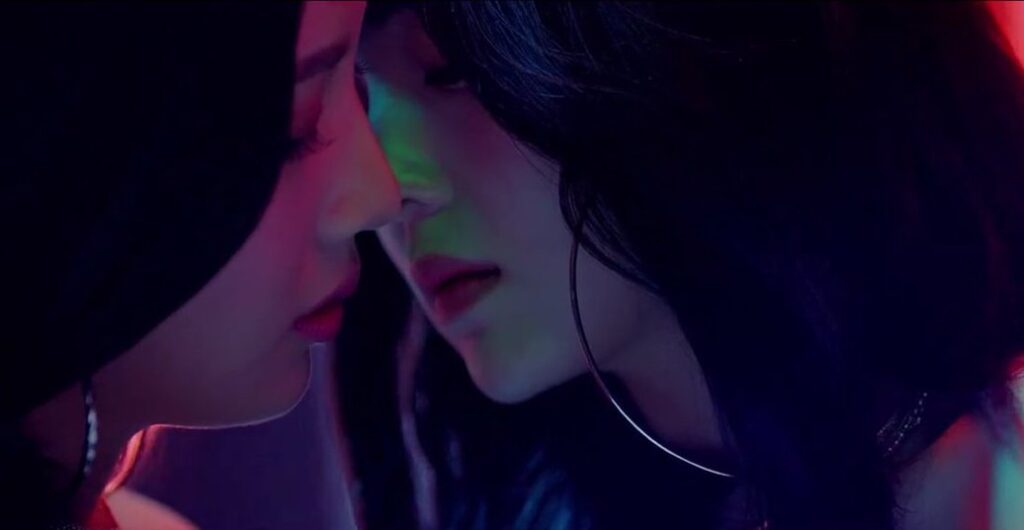
In spite of all this, actual representation does exist within the K-pop industry; however, it tends to garner less traction among fans. Examples like Wheein’s “Goodbye” or K.Will’s “Please Don’t” show love triangles in which the protagonist, in a plot twist, actually ends up pining after a character of the same sex. In a VLive, Day6’s Jae confirmed a gay storyline including characters played by members Sungjin and Wonpil in their school trilogy MVs for “What Can I Do,” “I Loved You,” and “When You Love Someone.” Of course, there are also idols that actually identify as LGTBQ, like Holland who does not shy away from his sexuality despite harsh criticism and an overall lack of support from the industry.
So why do artists and songs like these fly under the radar while releases that rely on queer-baiting gain more and more traction as years pass? Simple. They’re marketed that way. In queer-baiting comebacks like “Libido,” the appeal is the apparent queerness of it all. One need look no further than the concept photos to see this. Comparatively, the Wonpil-Sungjin storyline needed clarification from the members themselves, as it was never the intended focus of the video, and instead given the same treatment as any other relationship in the MV rather than being used as a concept or aesthetic.
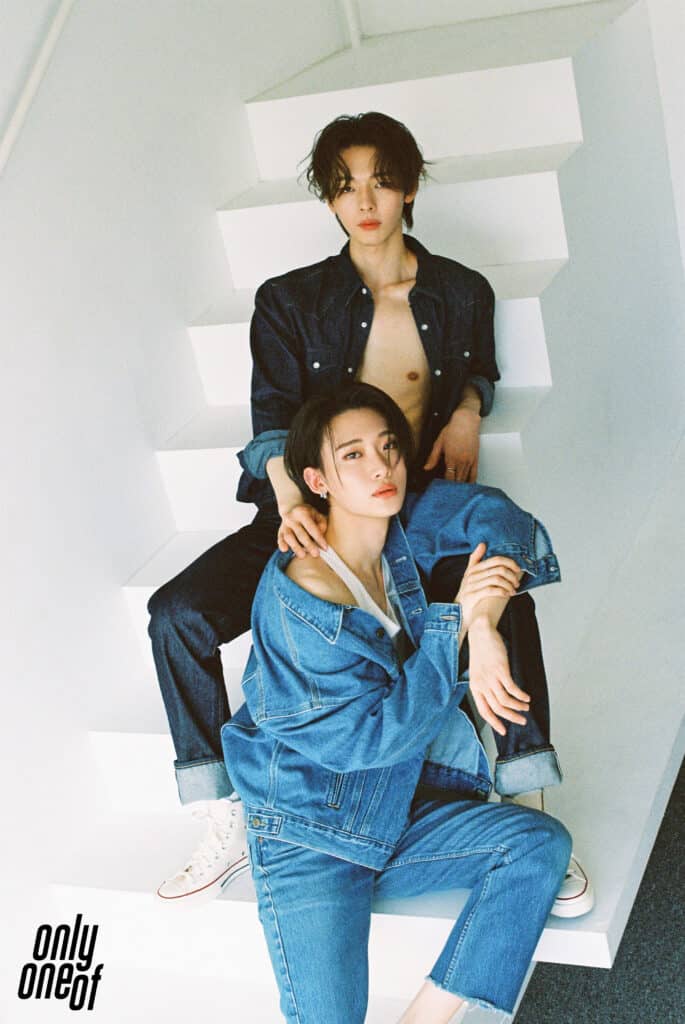
While anyone is of course free to find comfort or solidarity in any art, that doesn’t change the fact that releases like “Libido” are made with the intention to pander to fans through the use of subtly–never explicitly–gay storylines. Queer-baiting is not representation, nor is it progressive in a grander sense, but it does offer idols like Yves the chance to speak out, even when their companies do not. And though not likely to be any time soon, there may come a day when a company openly supports and depicts the LGTBQ population in K-pop, but until then, the use of queer relationships as concepts remains a marketing ploy. And a wildly successful one at that.
(Korea JoongAng Daily, YouTube, Chosun, MTV. Lyrics via 8D Creative. Images via 8D Creative and SM Entertainment.)
